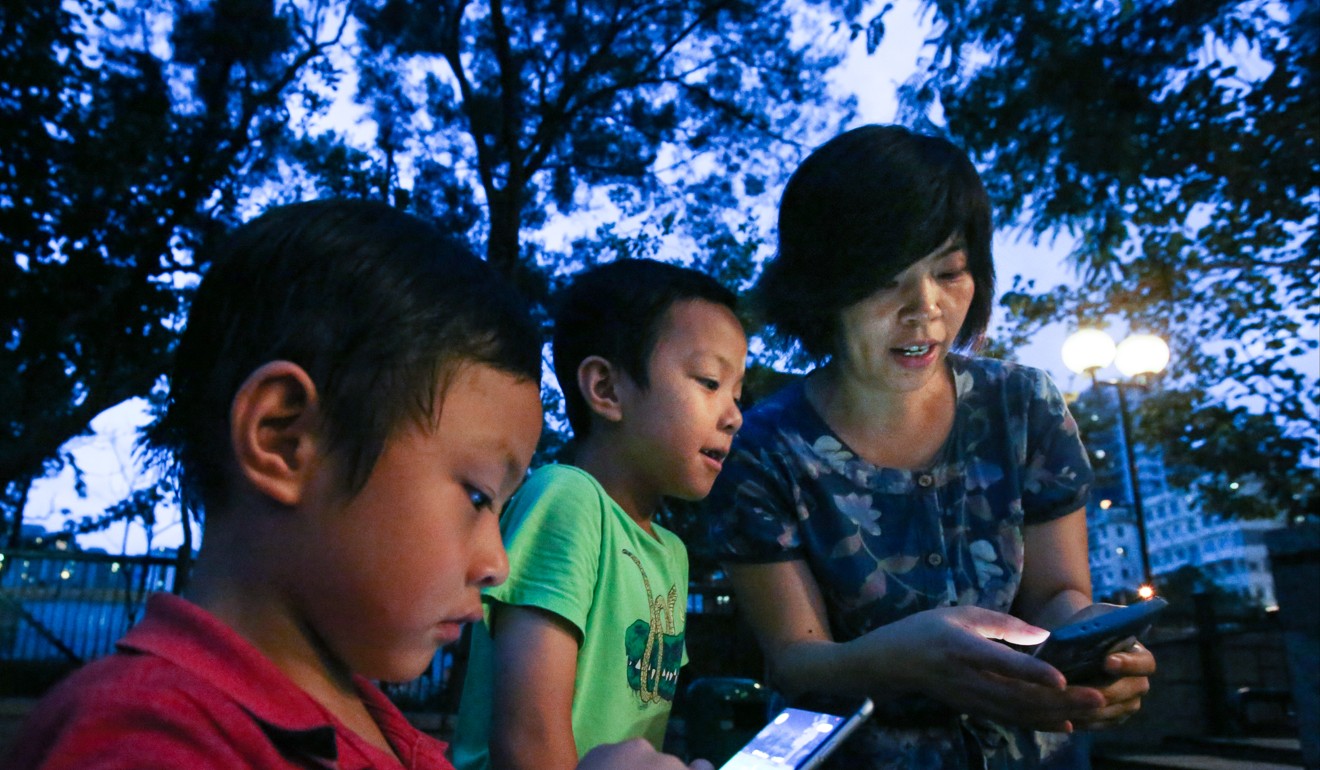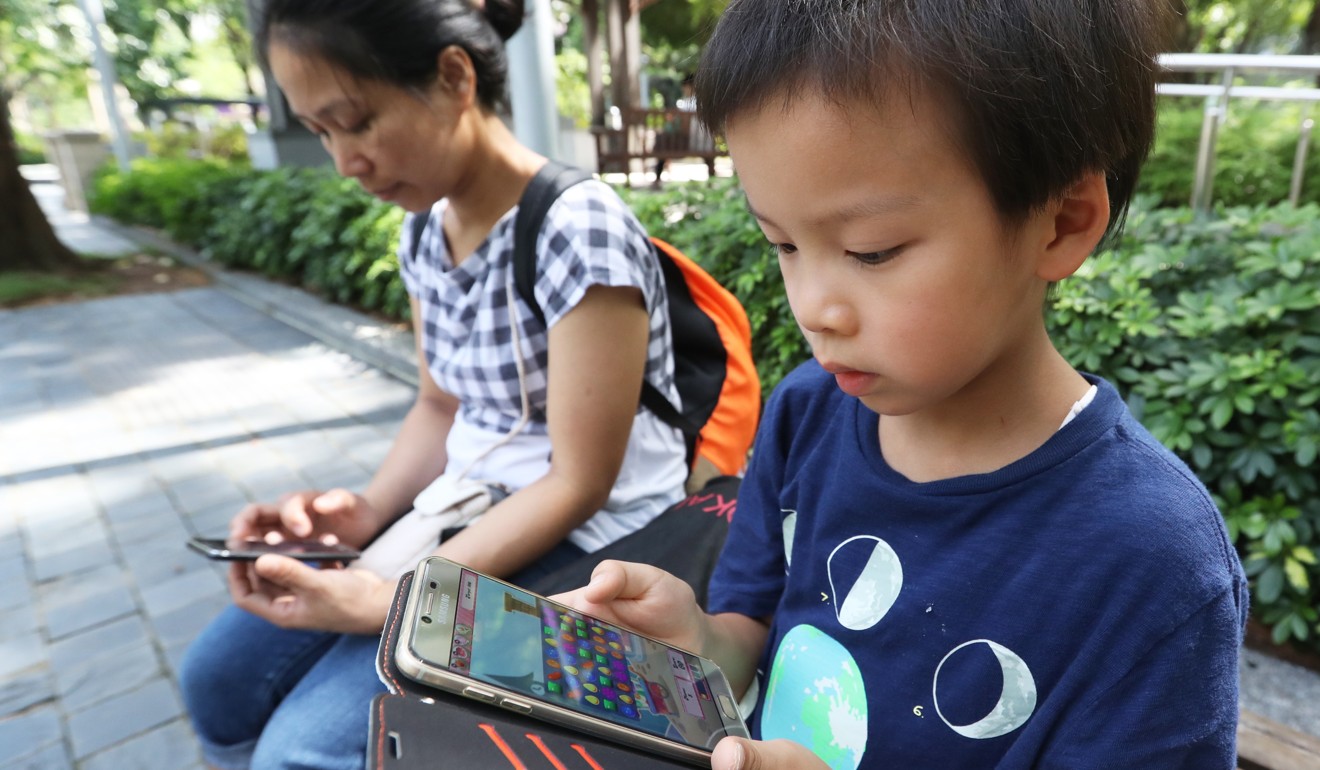
Put down your phones if you are concerned children may get gaming disorder, top psychologist tells Hong Kong parents
Dr Rachel Poon from Hong Kong Psychological Society says parents should not leap to conclusion their children are addicted after WHO announces new addition to list of mental health conditions
Hong Kong children may be staring at electronic screens more than ever, but parents should not leap to the conclusion this makes them sick, a top psychologist has said.
But, Poon said, parents should set an example by putting down their smartphones and tablets while around their young children to prevent addiction, which could lead to other problems such as depression.
“Recognising the gaming disorder … will allow therapy and make more resources available for children,” Poon said. “But we should also treat this [classification] with caution. The definition of the addiction is still not clear and parents should not begin to call their children sick too easily.”

In Hong Kong, about half of the teenage population spent 20 to 50 hours a week using the internet in 2017, according to the Department of Health, surging significantly from just 16.3 per cent in 2003 – before smartphones became ubiquitous.
One in 10 Hong Kong primary school pupils face video game addiction
Primary school students who spent three hours or more a day on the internet also increased from 3.2 per cent in 2014 to 13.1 per cent in 2017.
Poon said it was normal for many schoolchildren or young adults to be fascinated by video games at some points in their lives, especially when facing difficulties in the real world. They might seem inseparable from the devices during these times.

The best approach is to guide them through the real problems, usually related to peer or academic issues, help them build a healthy social network and find a purpose in life, after which many of them would naturally get bored with the game, she said.
Too much internet can ruin your mental health, says addiction treatment centre
But Poon said many adults often overreact by forcing their children away from the screens, labelling their children or even beating them physically – leading to family conflicts.
“It is more important to teach the parents how to react with the situation,” Poon said. “They should start by quitting the habit of always looking at their smartphones.”
Schools should also provided guidance on surfing the internet when they ask students to do homework digitally.

However, Poon said parents should intervene if playing video games began to affect school, family relationships or moods.
Poon said she was treating a 18-year-old man with depression, a condition he developed after spending years locked in his room playing video games who had finally realised he could no longer catch up the time he lost as all his peers had gone to university and left him behind.
6 ways parents in Hong Kong and everywhere can help teens addicted to mobiles
“He now feels very lonely and completely hopeless about his future,” Poon said.
A Department of Health spokesman said it was concerned Hong Kong children were spending more time on the internet and going online at a younger age.
There was also more evidence to suggest excessive gaming, including on the internet, was associated with clinical problems, he said.
An advisory group was formed in 2013 to address the issue, while various government departments, NGOs and schools have been providing various programmes and services to address the problem of excessive use of the internet, the spokesman said.

